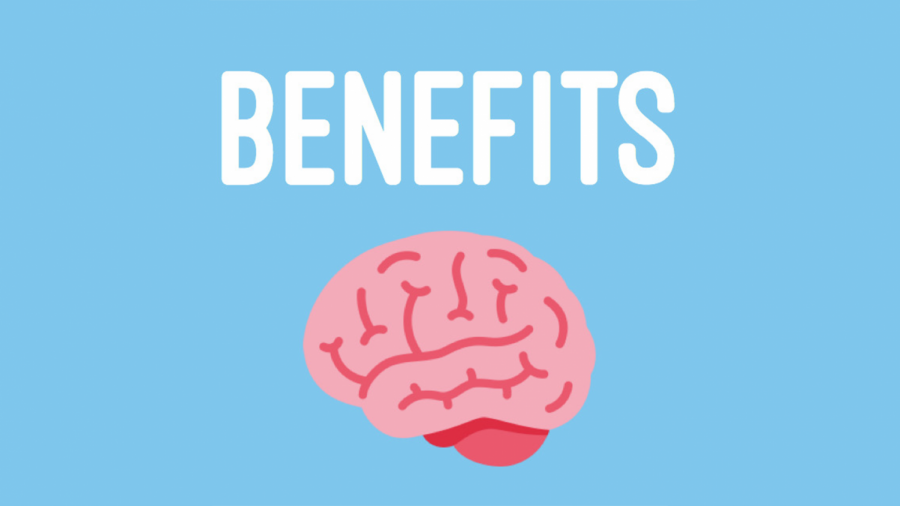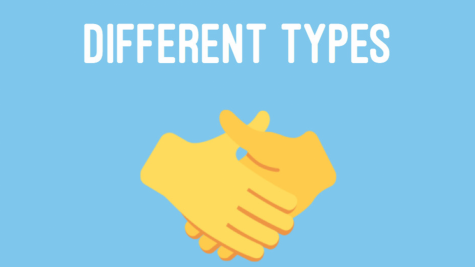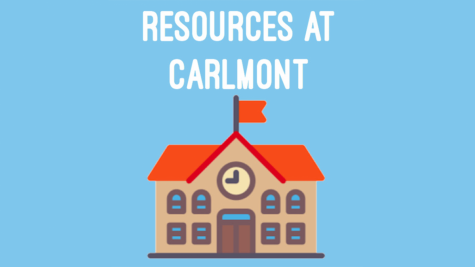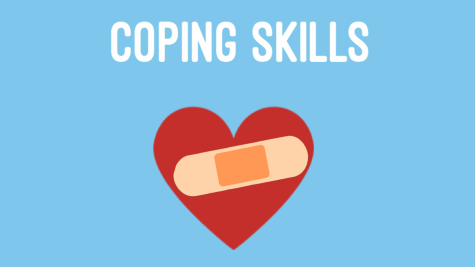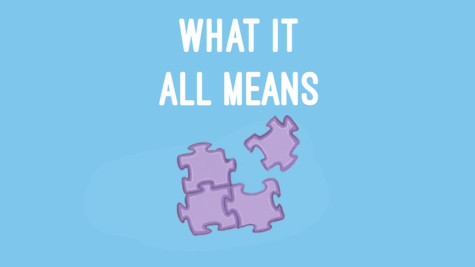Despite popular believe, most everyone can benefit from therapy in one way or another.
The benefits of therapy
It really does work.
Many doubt the effectiveness of therapy, which is why fewer people look into it. However, numerous scientific studies have shown that the extra support has a positive impact on patients.
A study conducted by the American Psychological Association (APA) shows that “the general effects of psychotherapy are widely accepted to be significant and large. The results of psychotherapy tend to last longer and [patients] are less likely to require additional treatment courses than psychopharmacological treatments.”
According to Bradley University, 36.9% of American men and 39% of American women are receiving treatment for mood and personality disorders. The purpose of therapy is to assist patients in managing their thoughts and feelings, making improvements to one’s general mindset.
“There are always stressors in life that can tap in, and a lot of times, we tend to internalize [them]. By talking through it and processing those stressors, we become complete,” said Francine Evans*, a marriage and family therapist.
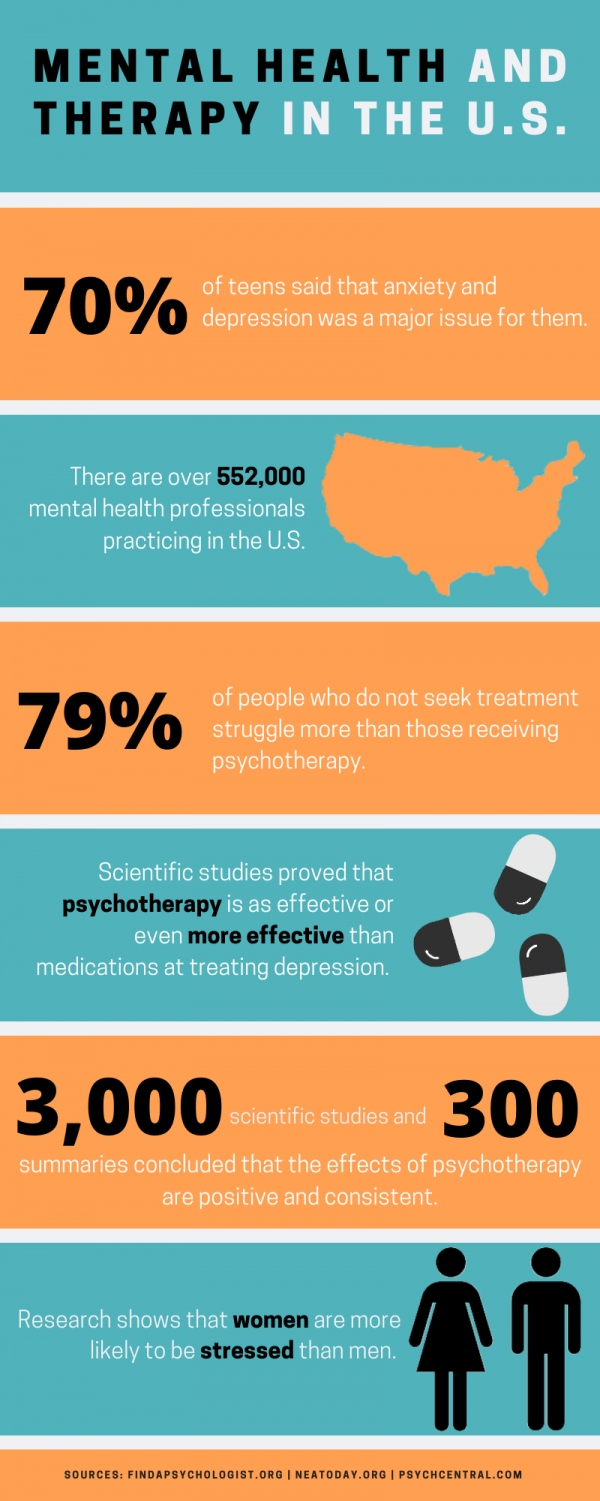
Everyone faces a particular set of obstacles throughout their lives — therapy exists to assist individuals healthily cope with those issues. Relieving pent-up feelings and emotions help to reduce pressure and put one more at ease.
Not only is therapy able to positively impact one’s mental state, but it can also help to improve any mental conditions someone may have.
According to The New York Times, “Over the last 30 years, treatments like cognitive-behavioral therapy, dialectical behavior therapy, and family-based treatment have been shown effective for ailments ranging from anxiety and depression to post-traumatic stress disorder and eating disorders.”
People can prevent building up anxiety by expressing their feelings in therapy which, in turn, can relieve a multitude of matters on their minds.
“The idea of therapy often comes with the misconception that you have to be some kind of ‘damaged’ person or have some ‘issues’ to go to a therapist. This is completely wrong. You can go to a therapist for literally anything, and I would encourage anyone who’s considering therapy to go for it,” said Dave Moody*, a sophomore.
Therapy provides support in dealing with stressful times, enables people to discuss their feelings, help improve different skills, and learn to cope with a variety of matters. During the 50-minute sessions, people talk about specific topics on their minds, and the therapists tentatively listen while presenting advice on how to deal with those issues
“Therapy has given me a place to ask questions about myself and gain constructive answers, as well as a place to vent without feeling like a burden of any kind,” said Gary Frank*, a sophomore.
Even if someone doesn’t have access to in-person one-on-one therapy, there are alternatives available.
Group therapy, phone therapy, and online chat therapy are all effective at improving one’s mental state. Some of those alternatives are also not as costly as individual therapy with a professional trained in the field.
Therapy is confidential — the therapist that is confided in legally cannot tell others what was discussed in the session, so it is not necessary to worry about others finding out what was mentioned. The only exception is if one says they plan on harming themselves or others.
Therapy has given me a place to ask questions about myself and gain constructive answers, as well as a place to vent without feeling like a burden of any kind. — Gary Frank*
Even though therapy is beneficial in an abundance of ways, many avoid it because of the “shame” that is correlated with it.
“I think some people don’t go to therapy even if they feel they could benefit from it for a multitude of reasons, but I feel the main reason is from embarrassment. There’s an unnecessary stigma around therapy and mental health issues, but there honestly shouldn’t be. It’s a great opportunity,” said Jane Burns*, a sophomore.
The particular stigma associated with therapy and mental health is that only people who have “mental conditions” need therapy when, in reality, this is entirely untrue.
“People tend to shy away from therapy due to mental health stigma and also how Hollywood tends to portray what therapy is and who needs therapy,” Evans* said.
If one can break through the stigma around mental health, they can experience significant improvements and just generally feel better about themselves.
*Due to the sensitive major of the content, this name has been changed to protect the anonymity of the source.

